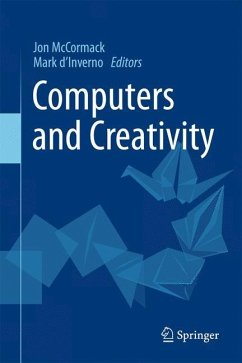
Flow, Gesture, and Spaces in Free Jazz
Towards a Theory of Collaboration
Mitarbeit: Rissi, Mathias; Kennedy, Nathan
Versandkostenfrei!
Versandfertig in 6-10 Tagen
38,99 €
inkl. MwSt.
Weitere Ausgaben:

PAYBACK Punkte
19 °P sammeln!
The scientific approach of this book transcends the limits of art literature in that it also develops geometric theories of gestures and distributed identities, also known as swarm intelligence.We exemplify this approach in the framework of free jazz, which is a prototypical creative and collaborative art form. Leader artists such as John Coltrane, Pharoah Sanders, Cecil Taylor, Sun Ra, The Art Ensemble of Chicago, Albert Ayler, Don Cherry, and Archie Shepp are presented in their strongest works and theories. The pillars of our theory of collaboration are built from psychologist Mihaly Csiksze...
The scientific approach of this book transcends the limits of art literature in that it also develops geometric theories of gestures and distributed identities, also known as swarm intelligence.
We exemplify this approach in the framework of free jazz, which is a prototypical creative and collaborative art form. Leader artists such as John Coltrane, Pharoah Sanders, Cecil Taylor, Sun Ra, The Art Ensemble of Chicago, Albert Ayler, Don Cherry, and Archie Shepp are presented in their strongest works and theories.
The pillars of our theory of collaboration are built from psychologist Mihaly Csikszentmihalyi's flow, physicist Gilles Châtelet's gestures, and computer scientist Bill Wulf's collaboratories.
We exemplify this approach in the framework of free jazz, which is a prototypical creative and collaborative art form. Leader artists such as John Coltrane, Pharoah Sanders, Cecil Taylor, Sun Ra, The Art Ensemble of Chicago, Albert Ayler, Don Cherry, and Archie Shepp are presented in their strongest works and theories.
The pillars of our theory of collaboration are built from psychologist Mihaly Csikszentmihalyi's flow, physicist Gilles Châtelet's gestures, and computer scientist Bill Wulf's collaboratories.












